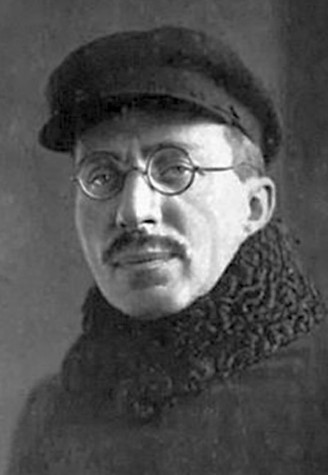Makarenko, Anton
Makarenko, Anton [Макаренко, Антон], b 13 March 1888 in Bilopillia, Sumy county, Kharkiv gubernia, d 1 April 1939 in Moscow. Soviet pedagogue and writer. After completing teacher training in Kremenchuk (1905), Makarenko held various teaching positions in Ukraine. He studied at the Poltava Pedagogical Institute (1914–17) and taught at schools in Poltava and Kremenchuk. In 1920 he began a new phase of his career by founding and running an institution outside of Poltava for homeless children, the Gorky Labor Colony. From 1927 until 1935 Makarenko headed the Dzerzhynsky Children’s Commune, a penal institution for young offenders outside of Kharkiv. The colony held many children left homeless by the Famine-Genocide of 1932–3. Makarenko then worked in Kyiv as deputy head of the labor colony division of the NKVD (1935–6) and also headed a labor colony in Brovary, a village near the mass grave of victims of the NKVD in the Bykivnia forest, on the outskirts of Kyiv. In 1937 Makarenko moved to Moscow, where he spent the rest of his life writing literary and pedagogical works.
The central tenet of Makarenko’s pedagogical theories was that the education of children should be based upon and accomplished through the collective. Makarenko applied this principle by creating a system of children’s brigades and hierarchical structures of self-government that allowed children to participate in the administration of the collective and relied on peer pressure to enforce conformity to the standards of behavior demanded by the collective. Competition among brigades (similar to the Stakhanovite method used in industry [see Socialist competition]), paramilitary uniforms and daily rituals, collective criticism of misbehavior, and the director’s exclusive right to punish miscreants served to maintain order in Makarenko’s children’s collectives. The children were always reminded that their own collective was part of the larger Soviet collective. Makarenko countered the objection that educating children through the collective destroys individuality by maintaining that in a socialist society the interest of the collective and the interest of the individual become the same.
Makarenko’s most important works are Marsh 30 goda (The March of 1930, 1932), Pedagogicheskaia poema (Pedagogical Poem, 3 vols, 1933–5; often titled The Road to Life in English translations), an account of his work at the Gorky Labor Colony, and Kniga dlia roditelei (A Book for Parents, 1937). Makarenko wrote only in Russian, but his books have been translated into 58 languages. His collected works (in 7 volumes) appeared in Ukrainian (1953–5) and Russian (1957–8). Makarenko’s fiction was influenced by Maxim Gorky. Centers specializing in the study of Makarenko and his pedagogical theories exist in Great Britain, Bulgaria, Italy, Germany, Czechoslovakia, and Japan. The Makarenko research center based at Philipps University in Marburg, Germany, is the leader in the field.
BIBLIOGRAPHY
Dadenkov, M. Zhyttia, diial’nist’ i pedahohichni ideï A.S. Makarenka (Kyiv 1949)
Lilge, F. Anton Semyonovitch Makarenko (Berkeley–Los Angeles 1958)
Bowen, J. Soviet Education (Madison, Wis 1962)
Getmanets, M. A.S. Makarenko i kontseptsiia novogo cheloveka v sovetskoi literature 20–30-kh godov (Kharkiv 1978)
Chrystia Freeland
[This article originally appeared in the Encyclopedia of Ukraine, vol. 3 (1993).]


.jpg)